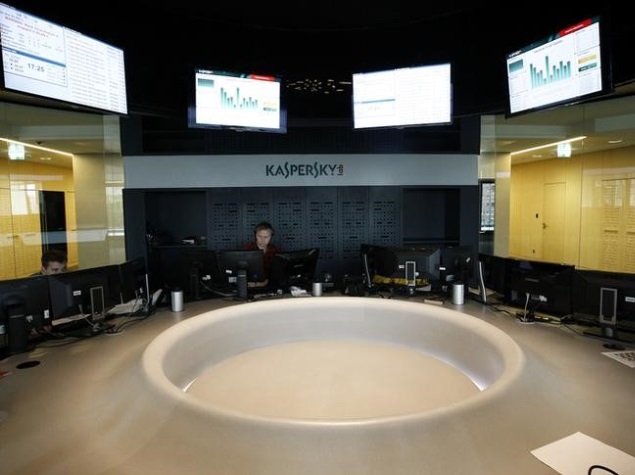- Home
- Internet
- Internet News
- Executives in Asian Luxury Hotels Fall Prey to Cyber Espionage: Kaspersky Lab
Executives in Asian Luxury Hotels Fall Prey to Cyber-Espionage: Kaspersky Lab

The attacks, which go well beyond typical cybercriminal operations, have claimed thousands of victims dating back to 2009 and continue to do so, Kaspersky Lab, the world's largest private security firm, shows in a report published on Monday.
Executives from the auto, outsourced manufacturing, cosmetic and chemical industries have been hit, the security firm said. Others targeted include military services and contractors.
In 2012, the FBI issued a general warning to U.S. government officials, businessmen and academics, advising them to use caution when updating computer software via hotel Internet connections when travelling abroad.
Kaspersky's report goes further in detailing the scale, methods and precise targeting of these attacks on top business travellers.
The movements of executives appear to be tracked as they travel, allowing attackers to pounce once a victim logs on to a hotel Wi-Fi network. Hackers cover their tracks by deleting these tools off hotel networks afterwards.
"These attackers are going after a very specific set of individuals who should be very aware of the value of their information and be taking strong measures to protect it," said Kurt Baumgartner, principal security researcher for Kaspersky, the world's largest privately held cyber-security firm.
Unsuspecting executives who submit their room number and surname while logging on to their hotel room's wireless network are tricked into downloading an update to legitimate software such as Adobe Flash, Google Toolbar or Microsoft Messenger, Kaspersky said. Because attacks happen at sign-on, encrypted communications set up later offer no defence against attack.
The same elite spying crew has used advanced keystroke-logging software and encryption-breaking at multiple hotel chains across Asia, it said.
Kaspersky declined to name the executives involved or the luxury destinations targeted but said it had informed the hotels as well as law enforcement officials in affected locations.
Ninety percent of the victims came from five countries Japan, Taiwan, China, Russia and South Korea. Business travellers to Asia from Germany, Hong Kong, Ireland and the United States have also been duped, Baumgartner said.
The Kaspersky report said a key mystery remains how attackers appear to know the precise travel itinerary of each victim, which points to a larger compromise of hotel business networks that researchers say they are continuing to probe.
© Thomson Reuters 2014
Get your daily dose of tech news, reviews, and insights, in under 80 characters on Gadgets 360 Turbo. Connect with fellow tech lovers on our Forum. Follow us on X, Facebook, WhatsApp, Threads and Google News for instant updates. Catch all the action on our YouTube channel.
Related Stories
- Samsung Galaxy Unpacked 2026
- iPhone 17 Pro Max
- ChatGPT
- iOS 26
- Laptop Under 50000
- Smartwatch Under 10000
- Apple Vision Pro
- Oneplus 12
- OnePlus Nord CE 3 Lite 5G
- iPhone 13
- Xiaomi 14 Pro
- Oppo Find N3
- Tecno Spark Go (2023)
- Realme V30
- Best Phones Under 25000
- Samsung Galaxy S24 Series
- Cryptocurrency
- iQoo 12
- Samsung Galaxy S24 Ultra
- Giottus
- Samsung Galaxy Z Flip 5
- Apple 'Scary Fast'
- Housefull 5
- GoPro Hero 12 Black Review
- Invincible Season 2
- JioGlass
- HD Ready TV
- Latest Mobile Phones
- Compare Phones
- Tecno Pova Curve 2 5G
- Lava Yuva Star 3
- Honor X6d
- OPPO K14x 5G
- Samsung Galaxy F70e 5G
- iQOO 15 Ultra
- OPPO A6v 5G
- OPPO A6i+ 5G
- Asus Vivobook 16 (M1605NAQ)
- Asus Vivobook 15 (2026)
- Brave Ark 2-in-1
- Black Shark Gaming Tablet
- boAt Chrome Iris
- HMD Watch P1
- Haier H5E Series
- Acerpure Nitro Z Series 100-inch QLED TV
- Asus ROG Ally
- Nintendo Switch Lite
- Haier 1.6 Ton 5 Star Inverter Split AC (HSU19G-MZAID5BN-INV)
- Haier 1.6 Ton 5 Star Inverter Split AC (HSU19G-MZAIM5BN-INV)







![[Partner Content] OPPO Reno15 Series: AI Portrait Camera, Popout and First Compact Reno](https://www.gadgets360.com/static/mobile/images/spacer.png)









